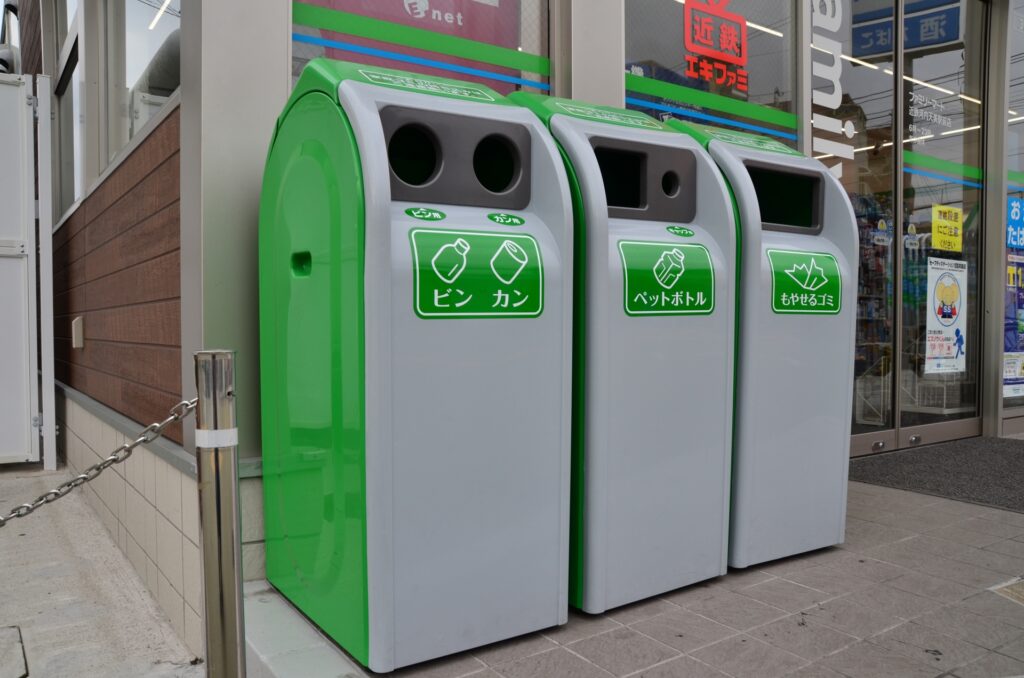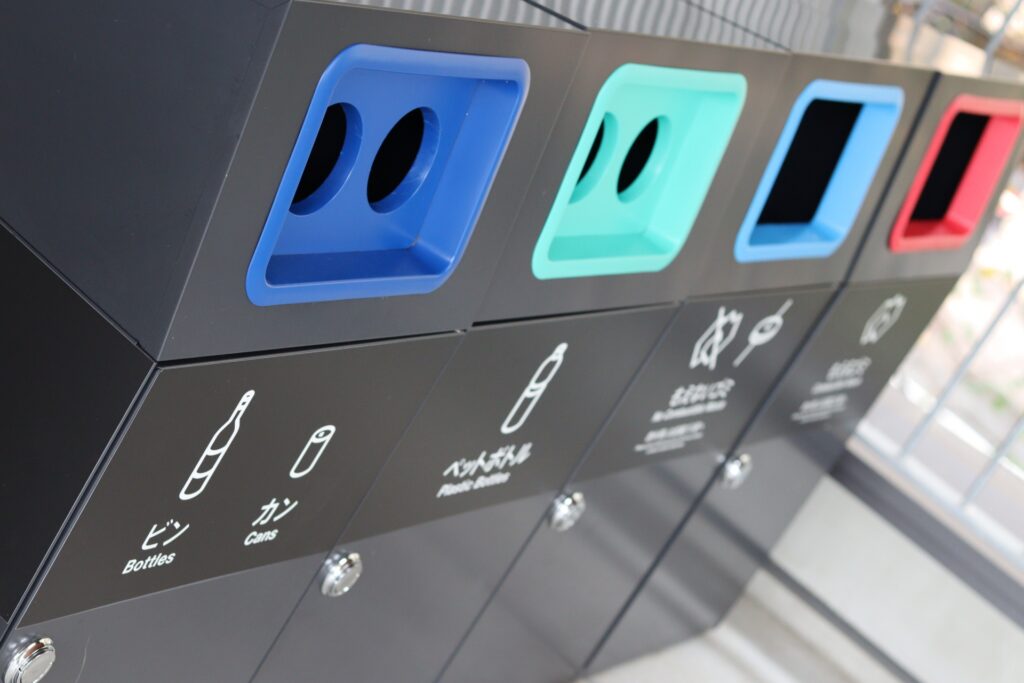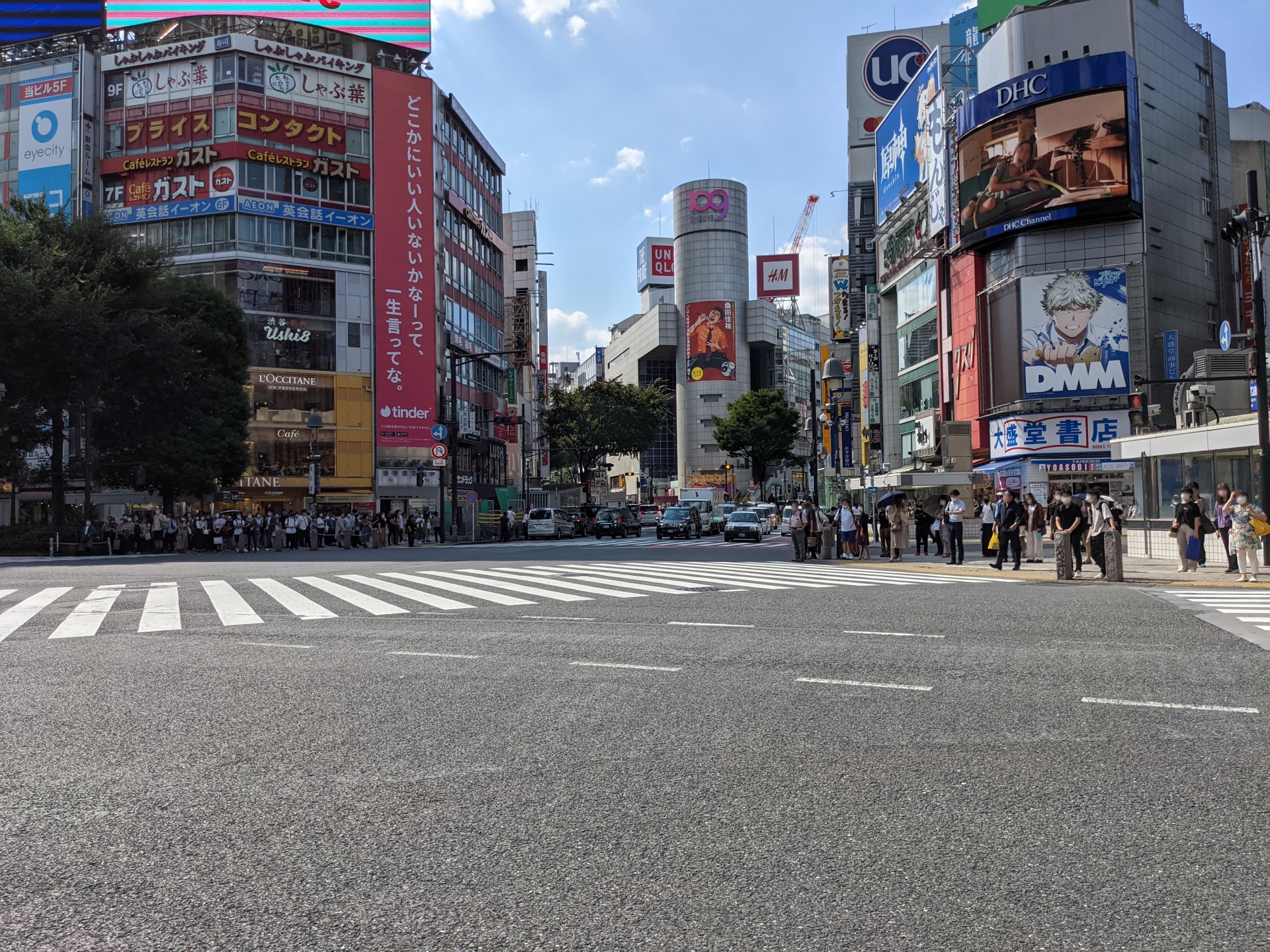Japan’s clean streets often surprise visitors, especially given the scarcity of public trash cans. This article explores the historical reasons behind the removal of trash cans, primarily due to the 1995 Tokyo sarin gas attacks, and how Japanese citizens and tourists alike manage waste disposal today. We’ll also offer practical tips for visitors to navigate Japan’s unique waste management system.
Why Does Japan Have So Few Trash Cans?
Japan’s scarcity of public trash cans surprises many tourists. The key reason lies in a tragic event from 1995: the Tokyo subway sarin gas attacks. Following this event, the government removed many public trash cans as a preventive counter-terrorism measure, particularly in busy areas. This was seen as a way to reduce potential threats, as the perpetrators had used trash cans to conceal harmful materials.
In addition to security concerns, Japan has a cultural focus on cleanliness. From a young age, citizens are taught to take responsibility for their waste. In schools, children participate in cleaning activities, a practice that fosters a culture of cleanliness and order. As a result, Japanese citizens often carry their trash with them until they find an appropriate place to dispose of it.
How Japan Manages to Stay Clean Without Public Trash Cans

Despite the scarcity of trash cans, Japan remains remarkably clean. One reason is the cultural value placed on cleanliness and communal responsibility. In public spaces, individuals are expected to manage their own waste. For instance, many people carry small plastic bags for trash or portable ashtrays if they smoke.
Moreover, Japan’s strict waste disposal rules play a crucial role. Each household is required to separate waste into categories such as burnable, non-burnable, and recyclable items. These rules are deeply ingrained in Japanese society, helping to minimize littering in public spaces.
The influence of social pressure also cannot be overlooked. It’s considered impolite and disrespectful to litter in Japan, and the societal expectation to keep public spaces clean encourages everyone to follow suit.
Where Can You Throw Away Trash in Japan?

Finding a trash can in Japan might be challenging, especially for tourists, but there are places where you can dispose of waste. Here are a few practical tips:
- Convenience Stores (Konbini): Many convenience stores have trash cans, typically located inside or just outside the store.
- Vending Machines: Some vending machines have small bins attached for disposing of empty bottles and cans.
- Train Stations: Larger train stations may have trash bins, particularly near restrooms or exit areas.
- Parks and Tourist Areas: Certain parks and popular tourist destinations have trash cans, though they might be scarce.
For tourists, it’s a good idea to carry a small plastic bag for any trash you accumulate during the day until you find a place to dispose of it.
Japan’s Approach to Recycling and Waste Management

Japan is known for its highly efficient recycling system. Waste is separated into multiple categories, including burnable, non-burnable, and recyclables such as plastics, glass, and aluminum. Each category must be disposed of on specific collection days, and there are even rules about how items should be prepared (e.g., rinsing out containers before recycling).
Recycling is taken seriously, and the country boasts some of the highest recycling rates in the world, especially for materials like aluminum and steel. This strict system ensures that waste is handled efficiently and helps keep public spaces free from litter.
Tips for Tourists on Managing Waste in Japan
For tourists, managing waste in Japan can be tricky, but it’s manageable with a few tips:
- Carry a Bag: Always have a small plastic bag with you to hold your trash until you find a disposal spot.
- Sort Your Trash: Be mindful of Japan’s recycling rules. Sort your trash into the correct categories—burnable, non-burnable, and recyclables.
- Follow the Rules: In some areas, trash cans may be divided by type. Make sure to put items in the right bin to avoid fines or confusion.
With a bit of preparation, tourists can easily navigate Japan’s waste management system and contribute to the country’s commitment to cleanliness.
Conclusion
Japan’s lack of public trash cans might be surprising at first, but the country’s cultural values, strict waste disposal laws, and personal responsibility make it work. Visitors can adapt by carrying small bags for their trash and taking advantage of the limited disposal spots available. By understanding Japan’s approach to cleanliness, tourists can help maintain the country’s pristine public spaces while respecting local customs.











